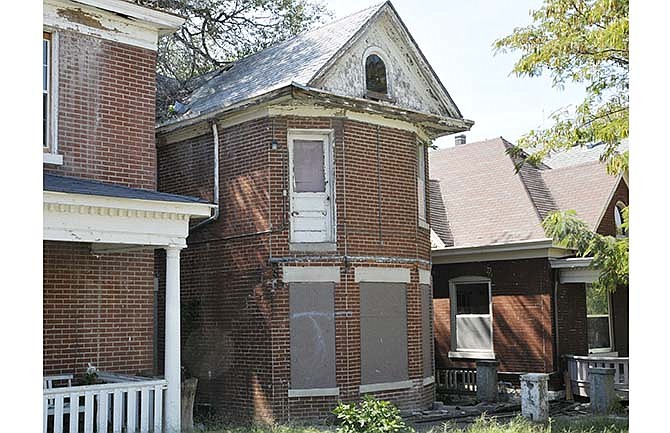Cole County's Board of Equalization on Thursday exempted Old Town Revitalization Company from property taxes, but did not grant an appeal from Ameren Missouri that would have lowered the company's taxes in Cole County.
After taking two votes, the board found that the Old Town Revitalization Company was exempt from local property taxes.
Voting in favor of the measure were Cole County Presiding Commissioner Marc Ellinger, Western District Commissioner Jeff Hoelscher and at-large members Scott Schaeperkoetter and Joanie Forck.
Jefferson City Administrator Steve Crowell and city staffer Terry Stephenson cited conflicts of interest and abstained from voting.
The first vote was 3-1 in favor of the Old Town exemption. But with the two abstentions, the vote technically was a 3-3 tie. County Clerk Marvin Register, the non-voting meeting facilitator, said in the interpretation of state statue, a simple majority in the roll-call vote was needed.
Jefferson City Council members approved a resolution at their July 7 meeting supporting the company's appeal to the board.
Ron Medin, an attorney who serves on the Old Town Revitalization Company board, said occasionally the company steps in to purchase properties, and that some properties are donated to the company to be "turned around, revitalized or, in some instances, demolished."
The Board of Equalization's vote Thursday involved a house in the 600 block of East McCarty Street. It was deemed unsafe and torn down. The property's eventual use remains undetermined since it is in the Wears Creek flood plain, but Medin said there have been discussions on making it a parking lot.
Jefferson City's "Old Town" area generally is defined as Clark Avenue on the east to Dix Road on the west, and from the Missouri River south to Stadium Boulevard.
Attorney John Ruth, legal counsel to Estes, said while political subdivisions may grant tax relief for the purpose of encouraging the reconstruction, redevelopment and rehabilitation of obsolete or blighted areas, the dominant use of the property must be for the benefit of an indefinite number of people. This does not include property held as green space or vacant property.
Ellinger argued the group has lessened the burden on the government and, therefore, should be given the exemption.
Schaeperkoetter didn't agree with that assessment for the first vote, but after hearing more from Ellinger and other members, he changed his vote in favor of the exemption.
The other issue before the board Thursday was a dispute over how Ameren Missouri's natural gas distribution lines should be assessed.
The board voted unanimously for no change on the valuation, just as it did last year.
Ruth said if they didn't do this, the county would lose the chance to appeal to the State Tax Commission on this issue.
Cole County is one of several counties around the state where the utility is protesting its tax bills.
The problem came to light locally last year, after informal meetings between utility representatives and the assessor's office failed to lead to a resolution. Using formulas that have been in place for a long time, the assessor's office staff estimated the real property value of Ameren's natural gas distribution lines at $53.2 million.
Ameren argued the same lines were valued at $20.4 million. Company officials said there was no depreciation allowed to determine the market value of the system.
Ameren last year also appealed assessments of the corporation's personal property holdings in Cole County, Estes said. He noted his staff valued it at $6.9 million, compared with Ameren's $2.8 million estimate.
"On this, the Board of Equalization accepted Ameren's value," Estes said.
If the parties don't like the Tax Commission's conclusion, the case could go to the circuit courts and, ultimately, to the state Supreme Court - although officials said that is rare.

